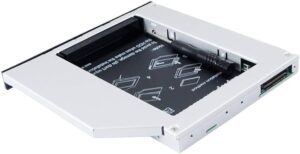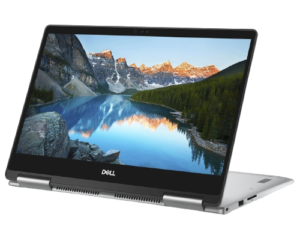Dell Laptop Hard Disk Issue in Patna
In the digital era, a laptop’s hard disk is a crucial component responsible for storing valuable data. A malfunctioning hard disk can lead to data loss and operational disruptions. This article provides insights on how users can safeguard their Dell laptops from hard disk issues and offers preventive measures to avoid potential data loss.

**1. Recognizing Signs of a Failing Hard Disk: Understanding the warning signs of a failing hard disk is the first step towards prevention. Keep an eye out for unusual noises, slow performance, frequent crashes, and error messages related to disk issues. If you notice any of these signs, it’s essential to take immediate action.

**2. Regular Backups: The most effective way to safeguard your data is to regularly back up your files. Use external hard drives, cloud storage services, or dedicated backup software to ensure that important documents, photos, and other data are securely stored. This practice minimizes the impact of a potential hard disk failure by providing a recent copy of your data.
**3. Invest in Quality Anti-Malware Software: Malware and viruses can wreak havoc on your laptop’s hard disk. Investing in reputable anti-malware software and regularly updating it helps protect your system from malicious attacks that can compromise your data and damage the hard disk.

**4. Maintain Adequate Free Space: Overloading your hard disk with excessive data can lead to performance issues and increase the risk of failure. Ensure that you always maintain a reasonable amount of free space on your hard disk. Uninstall unnecessary programs and regularly clean up temporary files to optimize storage.
**5. Update Operating System and Drivers: Keeping your Dell laptop’s operating system and drivers up-to-date is crucial for overall system health, including the hard disk. Regular updates often include enhancements, bug fixes, and optimizations that contribute to the stability and performance of your laptop’s storage system.

**6. Implement a Smart Shutdown Routine: Shut down your laptop properly rather than relying solely on sleep or hibernation modes. A proper shutdown helps prevent data corruption and minimizes stress on the hard disk. Avoid abrupt power-offs or forced restarts, as these actions can contribute to wear and tear on the storage drive.
**7. Monitor Temperature and Ventilation: Excessive heat is a common factor in hard disk failures. Ensure that your laptop is adequately ventilated and avoid using it on surfaces that obstruct airflow. Consider using cooling pads to maintain optimal operating temperatures.
**8. Run Disk Check Utilities: Dell laptops come equipped with built-in disk check utilities. Regularly run these utilities to scan and fix any errors on your hard disk. This proactive approach can identify potential issues before they escalate.

**9. Seek Professional Assistance: If you notice persistent issues or receive warnings about your hard disk’s health, it’s advisable to seek professional assistance. Dell service centers or certified technicians can diagnose the problem and provide appropriate solutions, including potential hard disk replacement if necessary.
By adopting these preventive measures and staying vigilant for signs of hard disk issues, Dell laptop users can significantly reduce the risk of data loss and ensure the longevity of their devices.
For Service Center location click here
